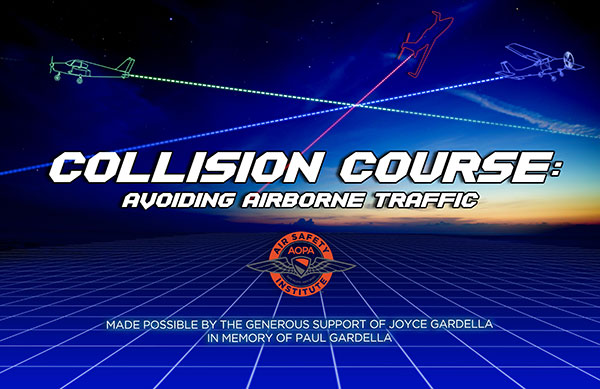
Did you know that the AOPA Air Safety Institute holds around 200 in-person seminars annually throughout the United States at airports, FBOs, aviation-themed locations, and the usual hotel venues? These seminars are completely free for anyone to attend. Just bring your enthusiasm and willingness to participate.
So, for your next club meeting or safety stand down, why not organize a call to action for your members to attend one of the 90-minute seminars in your area? It will provide them with an excellent opportunity to compare notes with seminar leaders, flight instructors, and other club members—and even make new friends along the way.
ASI’s new spring seminar, Collision Course: Avoiding Airborne Traffic—which debuts January 10—explores risk management strategies to avoid other aircraft in flight. You’ll learn about high-risk scenarios and locations, and you’ll review strategies for avoidance. For example, the risk of a collision increases when multiple aircraft converge near the same nav-aid or approach the same airport. Even advanced cockpit technology may increase collision risk because it ensures more precise course and altitude tracking, which also means that more aircraft may crowd together in the same airspace, effectively shrinking our “big sky.” Regardless of ATC support and in-cockpit traffic displays, mid-air collisions still make the newspaper headlines, and close calls still happen too frequently.
From congested corridors to hectic fly-ins, your seminar leader will talk about human eye limitations that impact the “see and avoid” philosophy, proven techniques on enhancing visual scan effectiveness, maximizing your visibility to other aircraft, the promise and peril of cockpit technology, and “danger zones” you may not be aware of. Invite your members and fellow pilots, and plan to attend the seminar at a location near you. Remember to check the seminar calendar frequently for updates as new locations and dates are added throughout the year.
Seminar made possible by the generous support of Joyce Gardella in memory of Paul Gardella